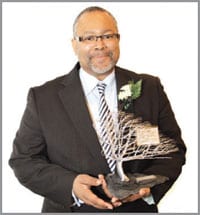Lifelong Impact Childhood Trauma Can Affect Victims Well After the Experience
A 6-year-old boy is disciplined because he cannot follow directions in class. A 16-year-old girl is pregnant with her second child. A 25-year-old man is arrested for fighting while drunk and high on cocaine. A 35-year-old woman renews her psychiatric medications for depression and anxiety. A 53-year-old man is discharged from the hospital after a heart attack with directions to stop drinking, stop smoking, and lose weight.
What single thing are these five people most likely to have in common? The answer is childhood trauma.
A major study of more than 17,000 patients in San Diego found that childhood trauma was a major factor in deciding which children had behavior and learning problems, which adults had mental health problems, what risky health behaviors people adopted, what serious chronic diseases they developed, and who died early.
So, what is this trauma we are talking about? Emotional abuse, physical abuse, sexual abuse, having a drug- or alcohol-abusing parent, having a mentally ill parent, having a parent go to jail, witnessing two parents hurting each other, and experiencing a divorce in your family were the ‘adverse childhood experiences’ or ACEs, studied. While more than half of the 17,000 participants had at least one of these experiences during childhood, those with more than four were from twice to four times as likely to suffer a life-threatening illness.
Not Hopeless
Just because you had one or more of these experiences does not mean you will definitely have trouble. ACEs are important because they are preventable, they are often ignored, and their impact is treatable. There is no doubt that the benefit of preventing, recognizing, and treating ACEs can be huge, and we don’t need expensive medical technology to do it. You can get your own ACE score or calculate one for your children, today, by going to www.acestudy.org and completing a simple, anonymous questionnaire.
So, what can you do to lessen the harm of trauma to yourself and your children? If you are a parent, stop and think about your own child’s experiences. There may be something that you can do today to lessen their ACE score or to protect them from experiencing childhood trauma in the first place.
If you have a high score, you can begin talking to someone about how memories of past trauma, and the attached emotions of those events, affect you day to day. Try talking to a trusted partner or friend, a clergy member, or a therapist. If you provide a human service, like education, therapy, or drug treatment, you can ask your troubled clients about trauma in their childhood, and address that in whatever plan you devise with them to help them heal and recover.
I and my colleagues at the Family Advocacy Center at Baystate Children’s Hospital often see children and families affected by serious trauma. For many of these children, we can already see the effects of this trauma on their lives. For all of them, however, we also see the joys and promises of childhood. We offer services to address the trauma and increase the joy and the promise. In a series of columns to follow in coming months, we will offer advice on how you can prevent or address the trauma in your child’s or your own life, and refocus on the joy and the promise. v
Dr. Stephen C. Boos is medical director of the Family Advocacy Center at Baystate Children’s Hospital.

